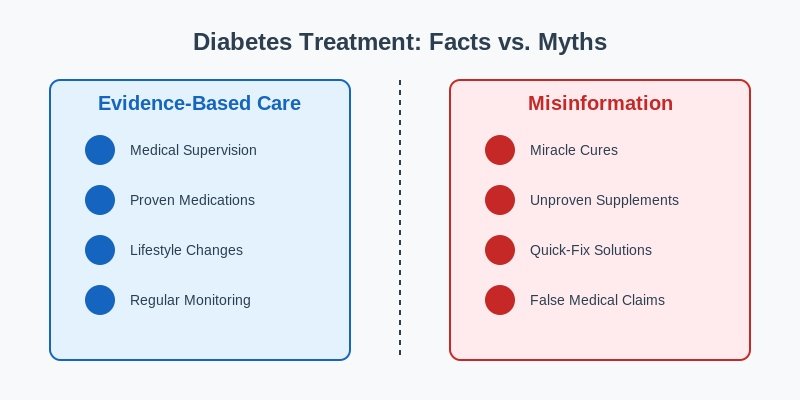In recent months, social media platforms have been flooded with controversial claims about diabetes treatments, particularly those allegedly endorsed by Dr. Mehmet Oz. This comprehensive analysis examines these claims and provides evidence-based information about diabetes treatments and misinformation.
Understanding the Viral Claims
Recent social media campaigns have prominently featured Dr. Mehmet Oz supposedly promoting CBD gummies as a “miracle cure” for diabetes. These advertisements claim to offer:
- Complete diabetes reversal within 7 days
- Normalization of A1C levels
- Resolution of all diabetes-related complications
- Affordable treatment options at $39
Fact-Checking Dr. Oz’s Credentials and Claims
Despite being presented as a “world-recognized endocrinologist” in these promotional materials, it’s crucial to understand that Dr. Oz’s actual medical background is in cardiothoracic surgery, not endocrinology or diabetes care. This misrepresentation raises significant concerns about the legitimacy of these promotional materials.
The CBD Gummies Controversy
The viral content makes several questionable claims about CBD gummies, including:
- Promises of an “instant cure” for diabetes
- Assertions about metformin being dangerous and unnecessary
- Guarantees of monetary compensation if the treatment fails
- Claims about pharmaceutical industry conspiracy to suppress this “cure”
Understanding the Technology Behind Misinformation
Modern technology has made it easier to create convincing but false content. Analysis of these videos reveals:
- Asynchronous lip movements suggesting artificial manipulation
- Use of AI technology to create synthetic content
- Sophisticated editing techniques to appear authentic
- Unauthorized use of Dr. Oz’s likeness
The Dangers of Misinformation in Diabetes Care
The spread of such misinformation poses several risks:
- Patients may abandon proven medical treatments
- Delay in seeking proper medical care could lead to complications
- Financial exploitation of vulnerable individuals
- Erosion of trust in legitimate medical treatments
Evidence-Based Diabetes Management
Instead of seeking miracle cures, individuals with diabetes should:
- Consult with qualified healthcare providers
- Follow established medical protocols
- Maintain prescribed medication regimens
- Implement lifestyle modifications as recommended by healthcare professionals
Protecting Yourself from Health Misinformation
To avoid falling victim to false health claims:
- Verify medical information through reputable sources
- Consult licensed healthcare providers before changing treatment plans
- Be skeptical of “miracle cure” claims
- Research the credentials of supposed medical experts
Conclusion
While the allure of a quick and easy diabetes cure is understandable, it’s essential to rely on evidence-based treatments and qualified medical professionals. The proliferation of misleading content, even when featuring well-known personalities like Dr. Oz, requires careful scrutiny and fact-checking.
References
This article is based on information from:
- Brunton, S. A. (2024). A Guaranteed Diabetes Cure. Clinical Diabetes, 42(3), 357. https://doi.org/10.2337/cd24-0033
- American Diabetes Association. (2024). Standards of Medical Care in Diabetes—2024. Diabetes Care. https://diabetesjournals.org/care/issue/47/Supplement_1
- American Diabetes Association. (2024). Living with Diabetes. https://www.diabetes.org/living-with-diabetes
- National Institute of Diabetes and Digestive and Kidney Diseases. (2024). Diabetes Treatment. https://www.niddk.nih.gov/health-information/diabetes/overview/treatment
- Centers for Disease Control and Prevention. (2024). Diabetes Management. https://www.cdc.gov/diabetes/managing/index.html
- Federal Trade Commission. (2024). Health Claims on Social Media. https://consumer.ftc.gov/articles/health-products-claims
Note: For specific medical advice about diabetes management, always consult with qualified healthcare professionals.

